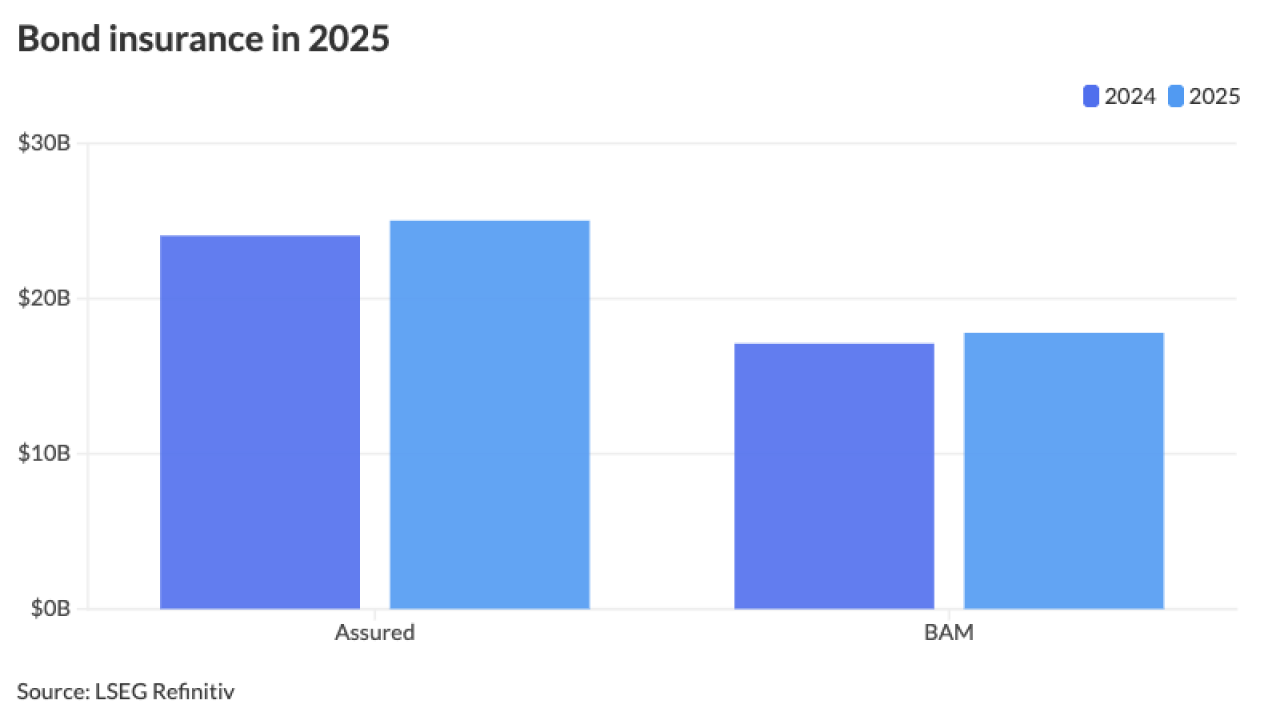Count the student loan bond sector among those impacted by uncertainty over federal policy and tax laws.
The sector, a small fragment of the muni market, is usually fairly predictable. Every spring and summer, issuers price around $1.5 billion of student loan bonds scattered across roughly 13 deals.
The asset-backed securities are backed by pools of student loans.
This year, issuers delayed deals because of market turmoil and weighed issuing more because of threats to the municipal bond tax-exemption.
The Rhode Island Student Loan Authority priced the first student loan deal of the year on April 30th. Several more deals were announced immediately afterwards.
Volume is likely to be similar to last year, participants say — or even more — but the schedule will be greatly consolidated.
Student loan issuers' fortunes are highly dependent upon the federal PLUS student loan program, according to Patrick Belica of SL Capital Strategies, which specializes in student loan bonds, and is an advisor on many student loan deals. Issuers bring their deals in the spring, around the time when the PLUS rate is set based on the ten-year treasury auction in May.
"They want to time the pricing of their bonds to be more or less in sync with what federal loan rates are set, so that there's not interest rate risk," Belica said, noting that each issuer is a competitor with the PLUS program. "If they priced in September, and rates were higher, they'd be at a disadvantage, because federal rates would be set at a time with low rates."
This year, President Trump's tariff announcements and
The Rhode Island Student Loan Authority tries to price its bonds before the PLUS rate is set every year, Executive Director Charles Kelley said. This year, the authority beat it by just under a week.
The pricing went "very well," Kelley said, and will result in lower costs for student loan borrowers.
"We had a great team," Kelley said. "Despite all the volatility in the market, our bonds were very oversubscribed."
Lead manager RBC Capital Markets and BofA Securities priced the $100 million tax-exempt piece of the $125 million deal from 4.21% for the 2029 maturity to 5.07% for the 2044. The bonds are subject to the alternative minimum tax and rated AA by S&P Global Ratings.
"You had the whole sector waiting for them to go first and see how they did. And it turns out they did fine," Belica said. "The deal went well."
On the heels of RISLA's pricing, several other issuers announced deals.
Last week, the Pennsylvania Higher Education Assistance Agency priced a $225 million deal, the Vermont Student Assistance Corporation priced a $32 million deal, and the Connecticut Higher Education Supplemental Loan Authority priced a $68 million deal.
The Finance Authority of Maine has a $31 million deal in the pipeline, and Belica said even more issuers are preparing to launch after seeing Rhode Island's success.
For the Finance Authority of Maine, tariffs and market turmoil had little impact on the planning or timing of its deal, according to Christopher Roney, FAME's general counsel.
"The things that did influence our considerations, as related to putting together the deal this year, were the federal budget proposals," Roney said. "Specifically, changes to the tax law provisions relating to exemptions for certain municipal bonds."
The Finance Authority of Maine's loans are "competitive only on a tax-exempt basis," Roney said.
The timing ended up basically the same as FAME's typical issuance. The amount, however, was heavily influenced by the threat of
FAME plans to borrow $31 million this year — double its typical annual volume, Roney said. He expects this year's borrowing will carry FAME through two years of lending.
Kelley said RISLA's issuance was also higher in anticipation of federal policy changes. He expects other student loan issuers will make the same choice.
"Many of us are increasing the amount of bonds that we sell so we can [support] families" if changes to the PLUS program make it harder to get loans, Kelley said. "There's a lot of 'just in case' going on."
The
Rumors about the PLUS program are all over the place, Roney said. There has been speculation of cuts to the rates, he said, which would make state student loans less attractive, and proposals to limit availability to PLUS loans, which would drive up demand for loans from state entities like FAME.
Belica expects total issuance to be higher, but only marginally so. Since most of the changes to the federal policy won't affect this year's bonds, he said most issuers will try to wait and see what happens, and maybe increase their deals over last year by around 10%.
FAME has employees who offer financial education to high schoolers and prospective student loan borrowers and counsel them on the best borrowing strategies.
"They've been struggling to adequately inform people who call," Roney said. "Because there's a lot of uncertainty out there."





